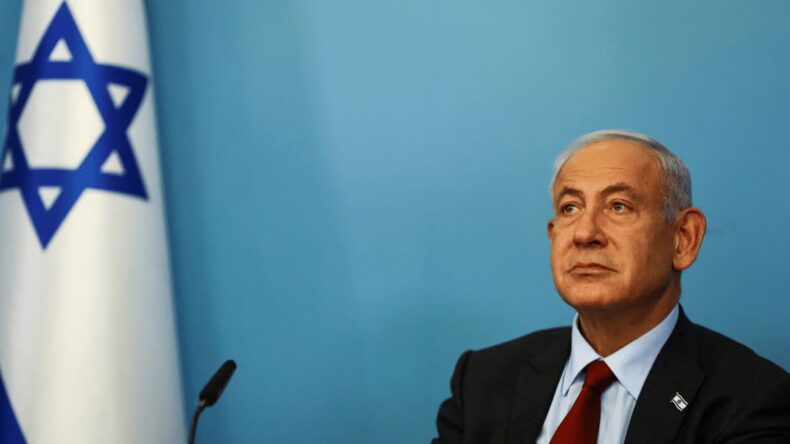The Knesset, Israel’s parliament, witnessed chaos as the PM Netanyahu-led coalition government passed the first hearing of judicial reforms bills.

Source-CNN
The passing of these bills witnessed a lash from the Israeli common population as well as from opposition leaders. People in Jerusalem, the capital city, turned the streets around Israel’s Supreme Court and Knesset into a sea of Israeli flags. Opposition leaders and activists accused the government of undermining one of the basic principles of democracy i.e. the system of checks and balances. Their set of arguments asserts that the government is attempting to seize absolute power and trying to change Israel to an authoritarian regime from a democratic one.
The principal agenda of these reforms is to increase the government’s authority in choosing judges and setting limits to the Supreme Court’s ability to strike down legislation.
The government has further hinted to the population for more judicial reforms, that additional steps like changing the appointment process of legal advisors of the government ministries such that they can be appointed and dismissed by the ministers, making legal advice a recommendation in contrast to the current scenario where it is binding on ministers, making legal advisors directly under the authority of Ministers rather than Justice Ministry’s oversight.

SOURCE-CNN
ISRAEL’S POLITICAL CRISES
With the onset of 2019, the political crises in Israel began with no government being able to form a stable coalition government. In 2022, the fifth Knesset elections were held where the majority of seats were won by the right-wing bloc. Hence a coalition government between the Likud leader and former PM of Israel Benjamin Netanyahu was formed.
ISRAEL’S SUPREME COURT AND ITS JUDICIAL REVIEW POWERS
The present constitutional framework authorizes the Supreme Court of Israel to exercise its judicial review powers on all legislation, government orders, and administrative actions taken by state bodies. The Supreme Court of Israel confines itself with the power to strike down any legislation and reverse executive orders if it finds them to be in violation of Israel’s Basic Laws.
Supreme Court’s judgements in the past few years have raised an eye of suspicion amongst right-wing politicians and their supporters claiming that the decisions of the Supreme Court are inclined towards the interests of left-wing causes. Religious resentment by ultra-orthodox politicians in judgements of the disputed West Bank territory has also raised concerns against the extent of powers of the Supreme Court.
The Judicial Selection Committee currently consists of 9 members, out of which three are Supreme Court judges, two are representatives of the Bar Association, two are Knesset members and two are ministers.
The selection of judges to all courts except the Supreme Court requires a simple majority of the Committee, but selection to the Supreme Court requires approval from at least 7 out of 9 members of the Committee. This means that politicians cannot choose judges without the consent of judges and vice-versa.
This helps in maintaining balance and doesn’t let any one branch exercise autonomous control. But the current government’s view, including Minister of Justice Yariv Levin, on this working structure of the Supreme Court is that it is more left-wing centered and the consensus is one-sided.
PROPOSED SYSTEM
The amendments proposed by the Judiciary Basic law, the composition of the Judicial Selection Committee will be changed, and a greater role and power would be given to the executive and legislature.
According to the suggested amendment the head of the Judicial Selection Committee would be the Minister of Justice, the Committee would still consist of eleven members with a change in its composition. The amended composition would consist two ministers from the government in power, the chairman of the Knesset Constitution, Law and Justice Committee, the Chairman of the Knesset State Control Committee, the Chairman of the Knesset Committee, the President of the Supreme Court and two other judges of the Supreme Court and two public representatives chosen by the Minister of Justice, one of them being a lawyer.
Keeping in mind the role of the Supreme Court of Israel in the past in context of preserving the Human Rights of its citizens, the dilution of its power has raised a matter of concern for the citizens with a view that their basic rights could be under threat. Even though the head of government, PM Netanyahu, claims that all these news are rhetoric claims and there isn’t any base to these arguments, the leaders around the globe are raising concerns against these reforms with an outlook that can harm Israeli democracy and its federal structure.












